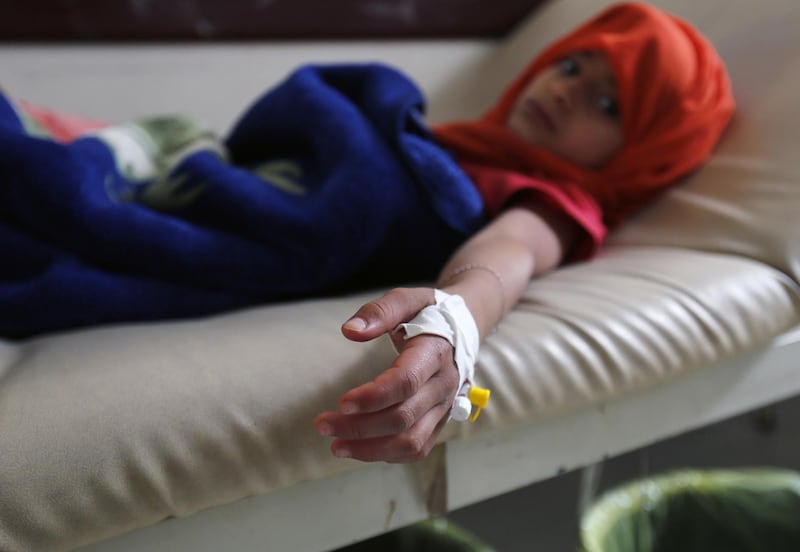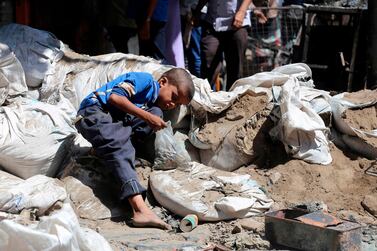Al Naser Hospital, the only public medical centre in the Dhalea province in southern Yemen, is under threat of closure with a severe shortage of medical equipment and an outdated building.
The hospital provides care for thousands of civilians caught in the bloody civil war that has killed more than 70,000 people and put much of the country into famine.
The National visited the hospital in the centre of Dhalea city and met its vice manager and other staff, who work around the clock to provide care for many civilians.
The staff also tend to thousands of patients, mostly women and children, infected by an outbreak of cholera in the country.
“The situation in the hospital is getting worse and we are facing many problems,” said Dr Mohammed Mohsen, the vice manager.
"The infrastructure of the hospital is in a poor condition. The functioning rooms are old and don't match the increasing need for new beds.
“The operational budget provided by the Ministry of Public Health is very small and we are suffering a lack in medical equipment and a shortage in medicine.
“The situation in the hospital has been worsened since Medicins sans Frontieres left Dhalea in October 2018.
"The MSF was supporting the hospital by providing free medical care for the community alongside with the Emirates Red Crescent, which used to provide us with medicine and equipment."
Dr Mohsen called on international organisations to urgently provide medical aid to Dhalea, which has been under Houthi shelling for over a month.
He said the hospital receives 200 new patients a day from battle zones such as Mureis, Al Awd and Al Azarik.
Dr Mohsen said the Houthis were deliberately targeting civilians in Dhalea.
Because of a lack of space, staff had to set up the cholera quarantine outside, with beds in tents and makeshift operating theatres set up.
“We are suffering a lot and the patients suffer much more,” said Dr Sameeh Hizam, head of the cholera quarantine. "We have no capacity in the hospital compound and we receive massive numbers of cholera patients.
"In April we received 1,000 patients with cholera, mostly from areas caught by war, so we had to set up the cholera quarantine out in the open.
“We urgently need help to set up a new quarantine in a good environment because the current one is exposed to wind and rain, and it is a shelter for mosquitoes."






